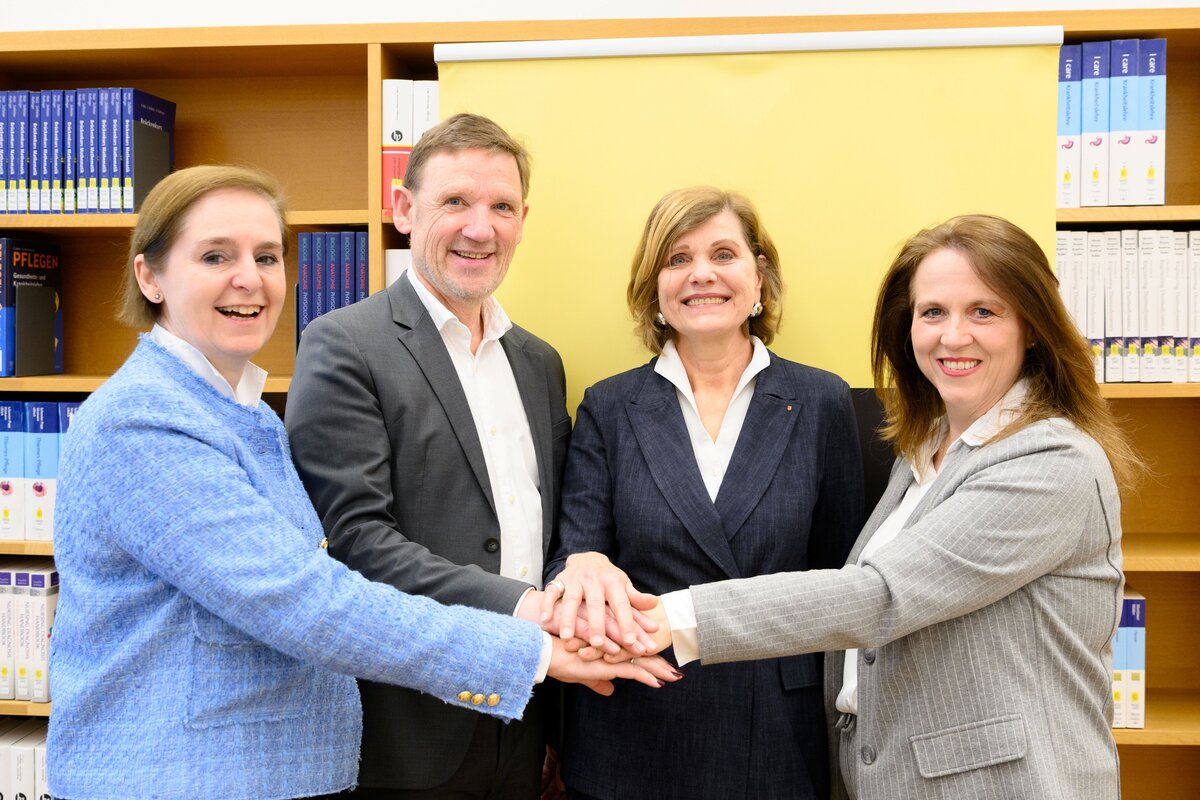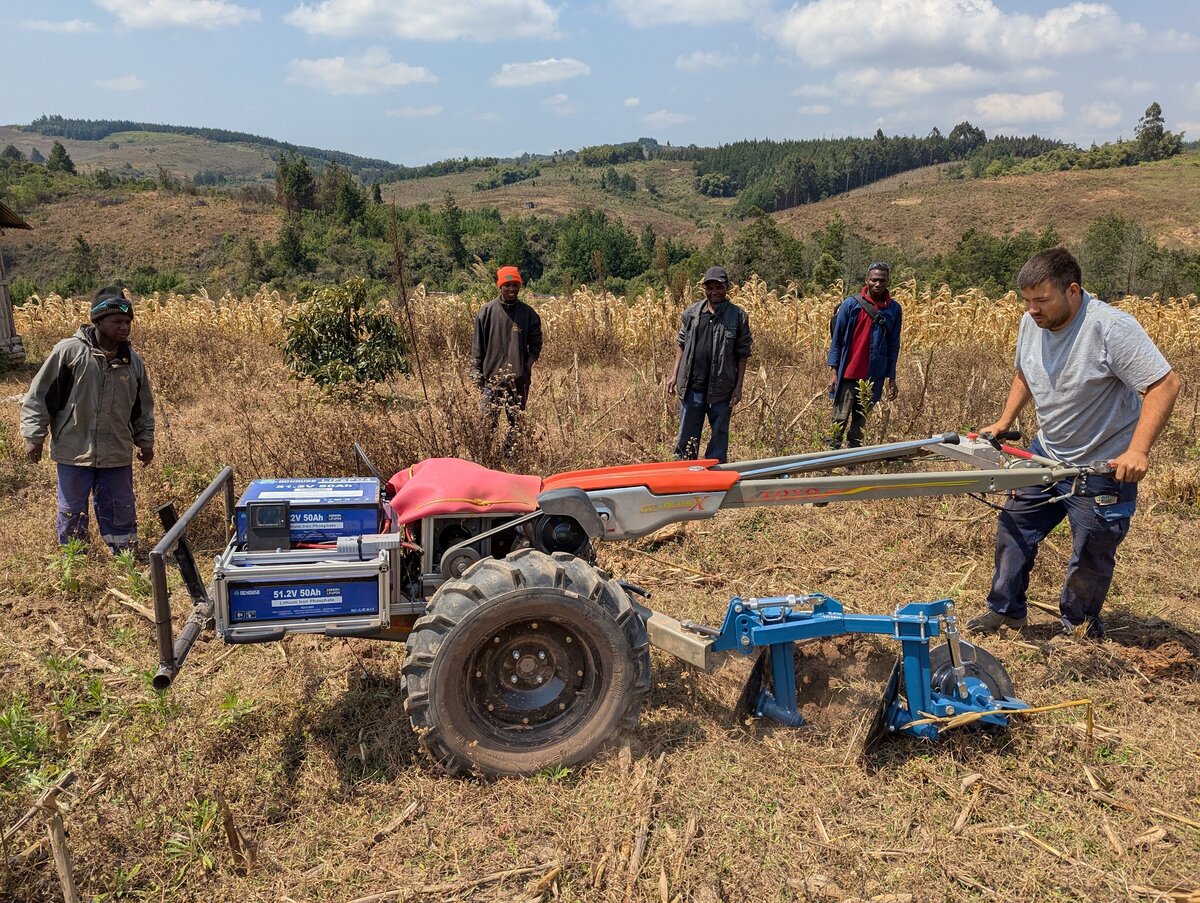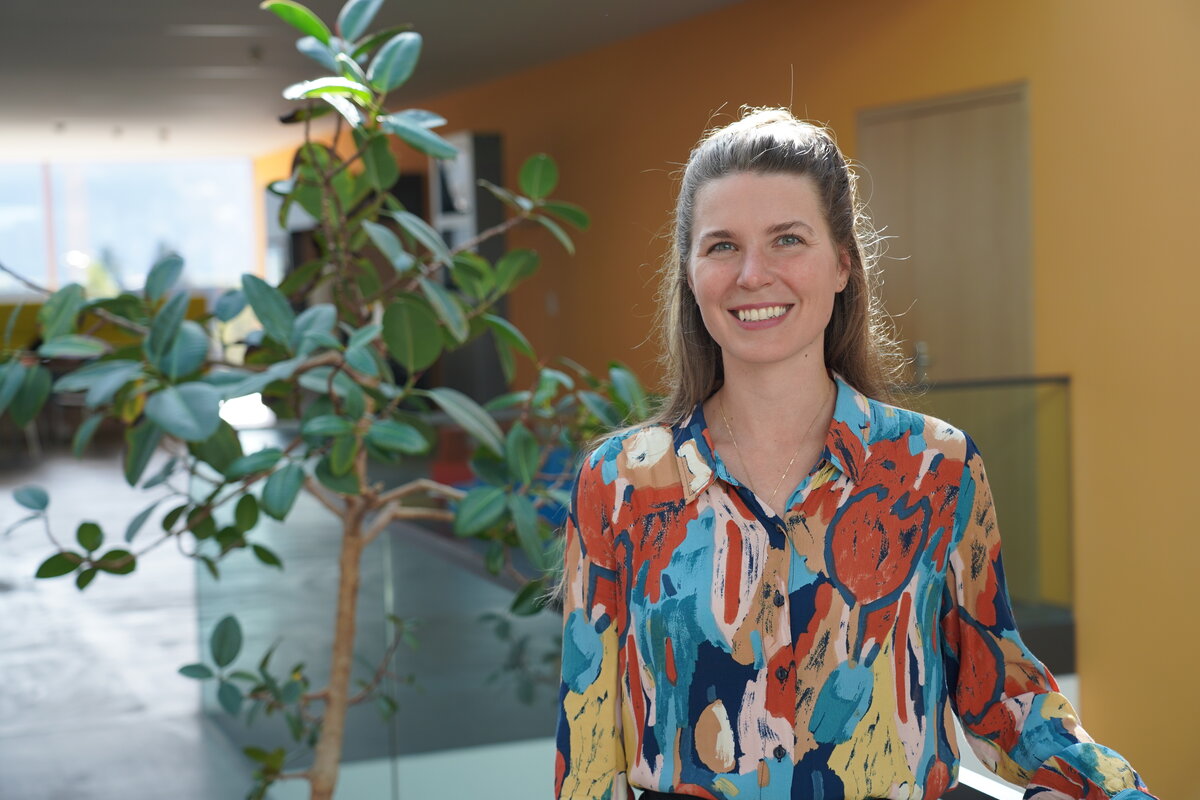Design Symposium Intelligence Beyond Human
23.10.2025
30 October, the Department of Design is hosting the Design Symposium for the third time. With the theme "Intelligence Beyond Human", this year's event invites you to rethink intelligence - beyond the human - and to explore together what opportunities this offers for design, coexistence and the future. Find out what you can expect in the interview.
What is the background to the topic of "Intelligence Beyond Human"?
The term intelligence is currently on everyone's lips - especially because so-called "artificial intelligence" has arrived in the mainstream with ChatGPT, Midjourney and co. and we are therefore increasingly asking ourselves what intelligence actually means.
Are machines really already "smarter" than humans? And what risks arise when we automate more and more processes and make decisions based on data analysis and pattern recognition? It is precisely against this background that ethical development towards responsible AI is becoming increasingly important: technological innovations need to be designed in such a way that they are transparent, fair and sustainable and take into account not only technical but also social and ethical standards.
Why is the topic of "intelligence beyond the human" so relevant right now - for design and creative activities, but also for society as a whole?
Today, it is becoming increasingly important in design processes to focus not only on people, but also on other living beings and the planet. Biological systems serve as inspiration - such as the slime mold, which is considered a communication genius and always finds the best way through labyrinths.
This leads to the central question of this year's symposium: What and, above all, how is intelligence? Natural, artificial or even distributed? Bees, ants and plants show collective or adaptive intelligence in different ways. The plant cognition scientist Paco Calvo, author of "Planta Sapiens - Unmasking Plant Intelligence", will provide exciting insights in his lecture.
The Design Symposium shows how Design can help shape developments in the field of artificial intelligence - by creating spaces to critically reflect on technology and design desirable futures. One example of this is Nadia Piet, founder of the AIxDesign collective and representative of the "Small AI" movement. She advocates efficient, accessible and sustainable AI models as an alternative to resource-intensive systems such as GPT-4 or Gemini.
The symposium brings together very different disciplines - from designers and AI researchers to beekeepers. Why is this interdisciplinary approach important?
Because future issues are too complex to look at them from just one perspective. Designers, researchers and philosophers bring very different ways of thinking to the table. It is this diversity that creates what we call collective intelligence - knowledge that is created through exchange. We need different perspectives just to ask the right questions.
Who is the symposium aimed at? Do participants have to have a design background or be particularly familiar with AI, or is it open to anyone who is interested?
The symposium is open to all interested parties - visitors do not need to have a design degree or prior knowledge of AI, and the diversity of perspectives from AI research, design, cognitive science and biology means that there are numerous points of contact. Hands-on formats will take place at Inatura in the afternoon - workshops and experiences designed by students on the master's degree programme in Design and Creative Leadership. In the evening, presentations by international experts will provide a deeper insight into the current debates on AI and more-than-human design. The symposium is an invitation to engage with current developments and get to know new ways of thinking. If you are curious and enjoy discovery, this is the right place for you.
Many programme items are designed as workshops and also take place at inatura. What highlights or special contributions would you personally like to highlight?
inatura is ideal for thinking about intelligence beyond the human. The location combines nature, research and experience - that fits perfectly with the theme. For the first time this year, there will be a student-curated track at the Design Symposium with installations and interactive formats developed by students on the master's degree programme in Design and Creative Leadership. Over the past semester, they have worked intensively on various interpretations of intelligence and concepts of collective leadership in various courses. In doing so, they have developed formats that make their findings tangible in the truest sense of the word: The "intelligent threads" workshop was developed with the German Institutes for Textile and Fiber Research Denkendorf. Here, visitors can experiment with e-textiles, i.e. textiles that incorporate electronics and conductive materials. There is also an exciting installation where visitors can try out the "dance of the bees" for themselves. Furthermore, in "AI Conversations", experts Johanna Bruckner and Florian Buehler will address burning questions on the fields of art and research, as well as education and the world of work, and enter into a dialog with visitors.
A particularly exciting part of the programme, which connects the two locations inatura and FHV, is a kind of ant walk: On the way to the FHV, participants explore the forms of collaboration of ants. The program then continues at the FHV with exciting keynote speeches and a panel discussion at the end.
What questions or food for thought would you like participants to take away with them at the end of the day?
I would like visitors to broaden their perspective: Intelligence is not an exclusively human privilege. It can be collective, distributed or ecological. If we recognise this, our ideas about Design, collaboration and responsibility will also change.
The Design Symposium of the Department of Design will take place on October 30 at the FHV and inatura Dornbirn. All information about the programme can be found ▷ here.



